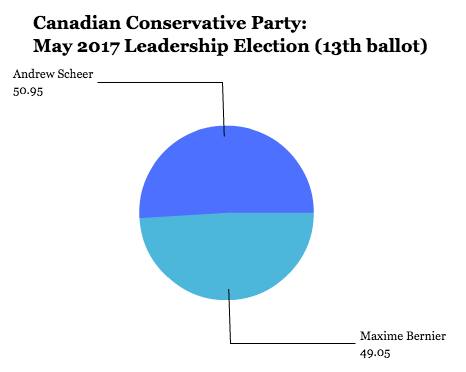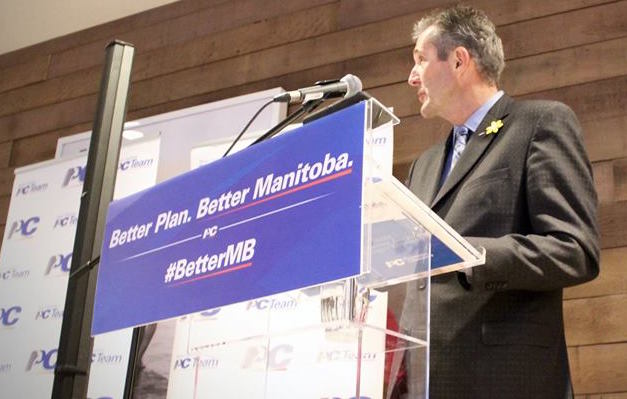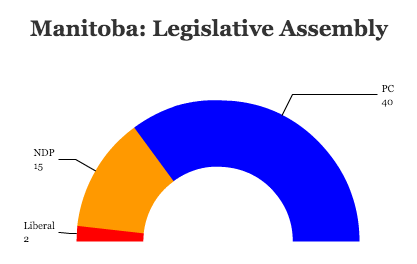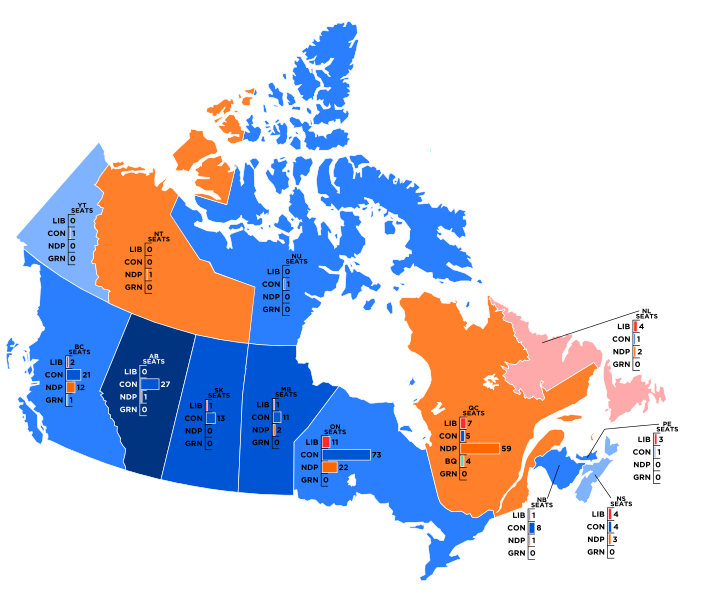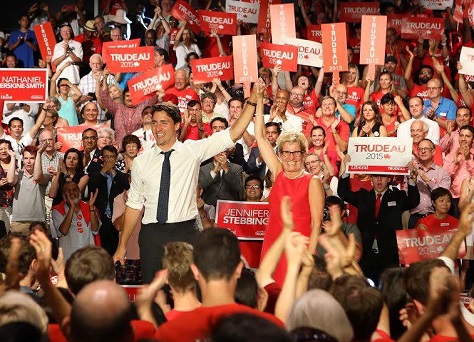
There will be no populist wave — for now — set to sweep Canada.![]()
After flirting with the harshly anti-immigrant Kellie Leitch, reality television star Kevin O’Leary and Québec libertarian and party stalwart Maxime Bernier, Canada’s Conservative Party has elected a far more mild-mannered leader in Andrew Scheer, a genial 38-year-old MP from Saskatchewan.
Think of Scheer (pronounced ‘share’) as the love child of Brad Wall (the Saskatchewan premier) and Stephen Harper (the former prime minister), but with a better smile. An MP from Regina since 2004, Scheer is the first Conservative, Progressive Conservative or Canadian Alliance leader from the province since John Diefenbaker, prime minister from 1957 to 1963.
In a sense, Scheer is the smartest choice that Canada’s Tories could have made. He is an approachable and friendly Conservative who could serve as a relatively pragmatic foil to the popular Liberal prime minister Justin Trudeau, whose still-high favorability ratings have slumped somewhat since his party’s landslide victory in the September 2015 election over the current budget, proposed alcohol tax increases and ongoing concerns about the state of the economy.
In Leitch, Canada’s conservatives might have tapped into a potent vein of economic anxiety and nationalist populism, though that has never traditionally been a style capable of winning a general election in Canada.
In O’Leary, at least before he dropped out, they might have tapped into a less vulgar version of Donald Trump — a novice and a showman with a fresh approach to Ottawa.
In Bernier, a former foreign minister, they might have tapped into a powerful new flavor of libertarian conservatism, from Francophone Canada, nonetheless, who was willing to put principle over surface-level popularity (as Bernier demonstrated time and again in his willingness to oppose the ‘supply management’ system that benefits dairy farmers, but which would also have lowered milk prices for consumers nationwide).
* * * * *
RELATED: As O’Leary exits race, Canadian Tories focus on a more conventional leadership race
* * * * *
But in a country where ‘nice’ counts, and where Trudeau glided his way to power in no small part due to his novelty, youth and optimism, Scheer is perhaps the best-matched opponent to take on Trudeau in the next election, due sometime before October 2019. When Scheer moves into Stornoway, the official residence of the opposition leader in Ottawa, he will do so as a father of five children and fully seven years younger than Trudeau, an approachable and pragmatic prairie conservative with a telegenic family. It doesn’t hurt that Scheer grew up in Ottawa, and so he is at ease in both French and English (unlike several of his English-speaking competitors and unlike even Bernier, who speaks English with a heavy French accent). Continue reading Genial former speaker Scheer wins tight contest to lead Canadian Tories
